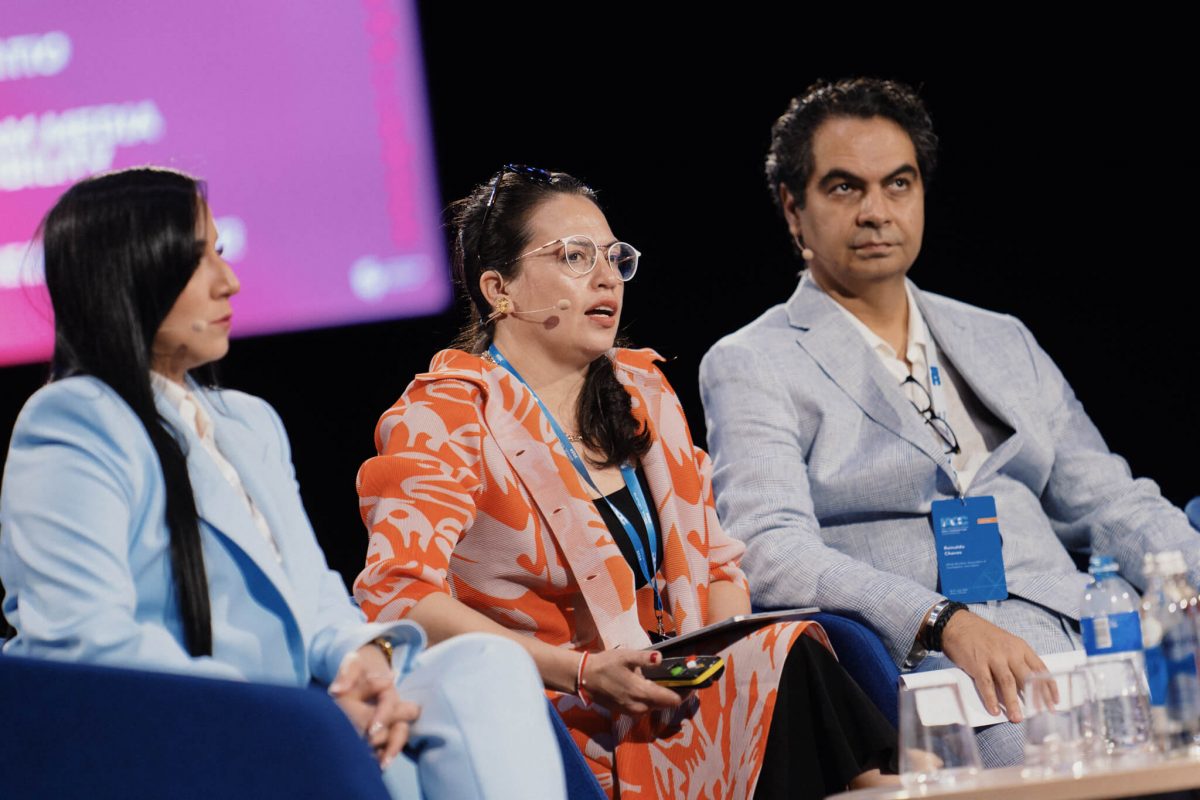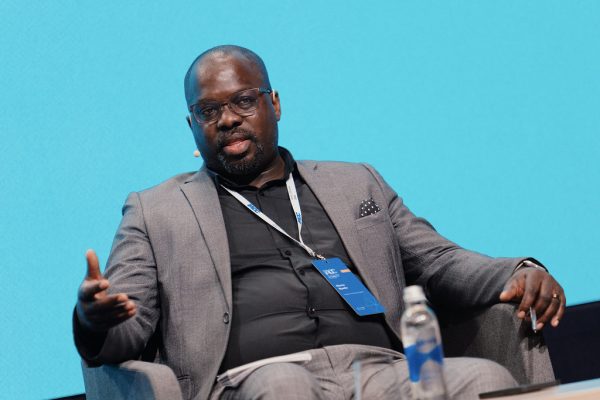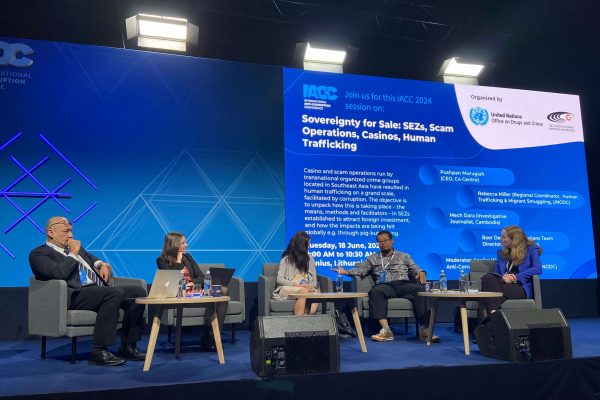Public trust in the media continues to erode around the world, leading to a surge in misinformation and disinformation, according to the Reuters Institute’s latest Digital News Report.
Speaking on June 19 at the International Anti-Corruption Conference (IACC) in Vilnius, Lithuania, journalists from South America have shared how this has made their jobs harder, and has led to targeted attacks and misinformation campaigns against them, their teams and their newsrooms.
“Around 77% of people in Colombia don’t trust mainstream media,” said Claudia Báez, co-founder of Cuestión Pública, an independent media outlet in Colombia which seeks to engage young audiences. She blamed the serious problem of media concentration in Colombia, as a few powerful interests control the majority of private outlets.
The Reuters Institute Report stated that a vicious circle has been created. Growing public skepticism towards traditional news sources, in turn, feeds the proliferation of misleading information. This then makes it challenging for journalists to effectively inform the public.
“Cuestión Pública was born to give a new opportunity to Colombian citizens to really be informed by independent journalism,” Báez stated. Despite these efforts, press freedom remains under attack, especially in more remote areas. “In the past year and a half, three journalists were killed in small towns in the north and south of the country”, she said.
In Ecuador, where gang violence and drug trafficking have made the country one of the deadliest in the world, media investigations often have limited results.
One exception was an investigation by digital outlet, La Posta, which revealed ties between an Albanian drug trafficking ring and the highest levels of political power in Ecuador. This sparked a police investigation into then-Ecuadorian president Guillermo Lasso, who denied the allegations and dismissed the journalists as “entertainment mercenaries.” The investigation was eventually dropped for lack of evidence.
According to La Posta’s director, Mónica Velázquez, many such investigations do not result in legal consequences. “The justice system is where you see that this investigation didn’t lead to much,” Velázquez said.
Velázquez also claimed at the panel that her team faced severe reprisals, including a disinformation campaign against them. She added that journalists’ families were followed and people took photographs of their children leaving school.
“They [people threatened by the exposure of corruption in La Posta’s revelations] started this campaign to try to flip the narrative and make people believe that the journalists were the ones involved in drug trafficking and corruption,” she said.
Similar situations are happening internationally, where journalists are being discredited and accused of criminal acts in response to their investigations.
In Latin America, Mexican President Andrés Manuel López Obrador has come in for sharp criticism for using press conferences to cast aspersions at journalists critical of his administration. The Committee to Protect Journalists blamed López Obrador in 2023 for preferring “harassing journalists over solving the country’s catastrophic press freedom crisis”.
And in Russia, Turkey, and Hungary, among others, journalists have faced charges of extremism, terrorism, or of serving foreign interests.
Doing so can be a win-win for authorities, as discrediting journalists plays into the spreading mistrust of news media. Governments critical of the press, including in Mexico and Turkey, have retained high levels of popularity.
At the IACC panel, speakers suggested a few solutions. First, helping the development of local media that are more connected to their communities is essential.. Second, it is important to understand how young generations interact and consume news, and to use technology in the right ways to reach them. And finally, media should ensure the information they publish is useful and directly helps people address their daily issues.


